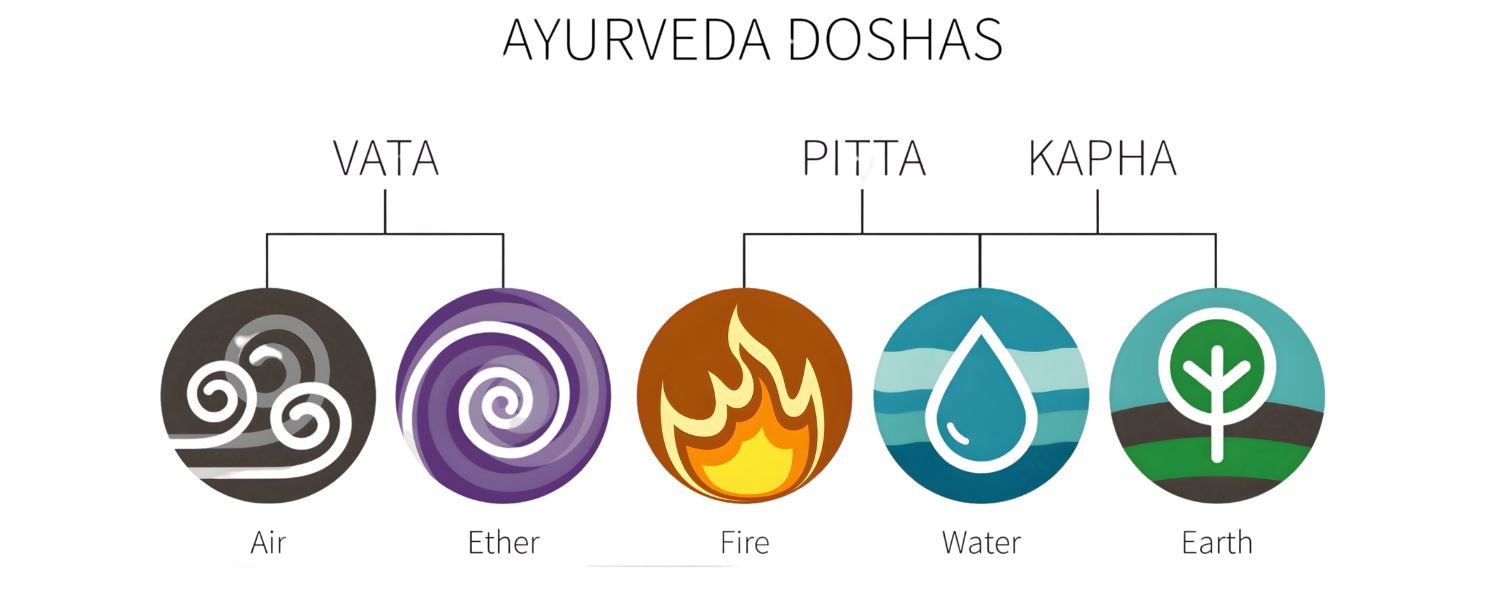In a world filled with quick fixes and fad diets, the Ayurvedic diet plan for weight loss stands out as a time-tested and holistic approach. Rooted in ancient Indian traditions, Ayurveda emphasizes balance, natural remedies, and mindful eating. If you’re looking for a sustainable way to shed pounds without compromising your health, an Ayurvedic diet might be your answer.
What is an Ayurvedic Diet?

An Ayurvedic diet is deeply rooted in Ayurveda, the ancient Indian system of holistic healing that dates back over 5,000 years. Ayurveda emphasizes harmony between the mind, body, and spirit, with food playing a critical role in maintaining this balance. The Ayurvedic diet is not a one-size-fits-all approach but is tailored to each individual’s unique body constitution, known as their ‘dosha.’ This personalized dietary practice promotes optimal health, digestion, and well-being by encouraging mindful eating, seasonal adjustments, and the consumption of natural, nutrient-rich foods.
Key Components of an Ayurvedic Diet:

-
Natural Foods: The Ayurvedic diet prioritizes fresh, organic, and seasonal foods. This includes vibrant fruits, nutrient-dense vegetables, whole grains such as rice and barley, and protein-rich legumes like lentils and chickpeas. Processed foods are avoided to maintain the body’s natural balance and vitality.
-
Dosha-Based Diet: According to Ayurveda, every individual has a unique combination of three doshas—Vata (air and space), Pitta (fire and water), and Kapha (earth and water). An Ayurvedic diet tailors food choices to your dominant dosha to maintain equilibrium. For example:
- Vata types benefit from warm, moist foods like soups and stews.
- Pitta types thrive on cooling foods like cucumbers, melons, and leafy greens.
- Kapha types do well with light, spicy foods like steamed vegetables and legumes.
-
Herbs and Spices: Ayurvedic cooking incorporates a variety of healing herbs and spices known for their medicinal properties. Turmeric acts as an anti-inflammatory, cumin aids digestion, ginger enhances circulation, and coriander detoxifies the body. These spices not only enhance flavor but also support overall health.
-
Mindful Eating Practices: Ayurveda emphasizes the importance of eating with awareness. This includes eating in a calm environment, chewing food thoroughly, and recognizing hunger and fullness cues. Timing is also key, with the largest meal typically consumed at midday when digestion is strongest.
-
Seasonal Adjustments: The Ayurvedic diet adapts to seasonal changes to support the body’s needs. For example, cooling foods are favored in summer, while warming foods are consumed in winter to maintain balance and prevent seasonal ailments.
In essence, an Ayurvedic diet is a holistic approach to nourishment, emphasizing the synergy between food and individual well-being. It promotes longevity, vitality, and inner harmony through conscious food choices aligned with nature and personal constitution.
Importance of the Ayurvedic Diet in Weight Loss

Ayurveda, the ancient Indian system of medicine, emphasizes holistic well-being, including maintaining a healthy weight. An Ayurvedic diet promotes weight loss through balanced nutrition, mindful eating practices, and natural detoxification. Unlike modern diet plans that often rely on restrictive calorie counting, Ayurveda focuses on addressing the underlying causes of weight gain, such as poor digestion, accumulation of toxins (Ama), and imbalanced doshas (Vata, Pitta, and Kapha).
Ayurvedic principles encourage personalized dietary choices based on an individual’s dosha type, ensuring that food not only nourishes the body but also maintains internal harmony. This approach helps in sustainable weight loss by improving metabolism, enhancing digestion, and reducing cravings naturally.
Benefits of an Ayurvedic Diet for Weight Loss:

- Enhances Digestion: Ayurvedic herbs and spices like ginger, turmeric, and cumin boost metabolism, improve gut health, and ensure efficient nutrient absorption, leading to better energy levels and reduced fat accumulation.
- Detoxifies the Body: Regular consumption of detoxifying foods and beverages, such as warm lemon water, herbal teas, and fiber-rich vegetables, helps in flushing out toxins (Ama) from the body, which are often responsible for sluggish metabolism and weight gain.
- Balances Doshas: A well-planned Ayurvedic diet harmonizes the body’s doshas, reducing emotional eating, controlling hunger pangs, and promoting mindful eating habits. This balance helps in preventing overeating and supports long-term weight management.
- Promotes Mindful Eating: Ayurveda encourages eating in a calm environment, focusing on each bite, and avoiding distractions like television or smartphones. This practice enhances satisfaction, prevents overeating, and aids in better digestion.
- Incorporates Natural Remedies: Ayurvedic diets often include natural fat-burning remedies such as Triphala (a blend of three fruits), which aids digestion and enhances metabolism, and Guggul, known for its lipid-lowering properties.
Incorporating Ayurvedic dietary practices into daily life not only aids in effective weight loss but also enhances overall well-being, making it a sustainable and holistic approach to health.
What are the Possible Reasons for Obesity?

Obesity is a complex condition influenced by multiple factors, including lifestyle, dietary habits, and genetic predisposition. Ayurveda, the ancient Indian system of medicine, offers a holistic perspective on the causes of obesity, emphasizing the balance of body, mind, and spirit. Key contributing factors include:
-
Poor Digestion (Mandagni): According to Ayurveda, weak digestive fire (Agni) leads to improper digestion of food, resulting in the accumulation of Ama (toxins) in the body. These toxins interfere with metabolic processes, slowing down fat metabolism and leading to weight gain.
-
Sedentary Lifestyle (Alasya): Lack of regular physical activity reduces calorie expenditure, causing an imbalance between calorie intake and usage. Ayurveda stresses the importance of daily exercise (Vyayama) to maintain a healthy weight and prevent obesity.
-
Unhealthy Diet (Apathya Ahara): Consuming excessive amounts of processed, oily, and fatty foods increases Kapha dosha, which is associated with heaviness and weight gain. Overeating, irregular meal times, and consumption of junk food further contribute to obesity by disrupting metabolic balance.
-
Emotional Eating (Manasika Hetu): Stress, anxiety, and emotional disturbances often lead to overeating, especially comfort foods high in sugar and fat. Ayurveda recognizes the mind-body connection and emphasizes stress management through meditation, yoga, and mindfulness to prevent obesity caused by emotional eating.
-
Genetic Factors (Beeja Dosha): A genetic predisposition to obesity, inherited from family, can influence body weight. While genetics play a role, Ayurveda believes that proper lifestyle choices can help mitigate these effects.
-
Hormonal Imbalance (Dosha Vikruti): Imbalances in hormonal levels, such as thyroid dysfunction or insulin resistance, can affect metabolism and lead to weight gain. Ayurveda recommends personalized treatments, including herbal remedies and dietary adjustments, to balance hormones naturally.
Addressing obesity through Ayurveda involves not just weight reduction but also improving overall well-being by balancing doshas, enhancing digestion, and promoting mental clarity.
Ayurvedic Concept of Overweight or Obesity

In Ayurveda, overweight and obesity are primarily attributed to an imbalance in the Kapha dosha, one of the three fundamental energies in the body. Kapha is associated with the water and earth elements, symbolizing heaviness, stability, and moisture. When Kapha accumulates excessively, it leads to weight gain, lethargy, and a sluggish metabolism, making it challenging for the body to burn fat efficiently.
Kapha Characteristics:
- Slow metabolism: The body’s metabolic processes become sluggish, leading to reduced calorie burning.
- Cravings for sweet and oily foods: A tendency to seek comfort foods that further aggravate Kapha.
- Water retention: The body retains excess fluid, contributing to swelling and weight gain.
- Lack of energy: Persistent fatigue and lack of motivation to engage in physical activity.
- Stubborn fat accumulation: Especially around the hips, thighs, and abdomen.
Ayurvedic treatments for managing obesity focus on balancing Kapha through dietary adjustments, lifestyle changes, and herbal remedies. This includes consuming light, dry, and warming foods, engaging in regular exercise, and using specific herbs like Triphala, Guggul, and Turmeric to enhance metabolism and promote fat burning.
Tridosha and Obesity

Ayurveda classifies the human body into three doshas, each governing different physiological functions and influencing body weight:
Vata (Air and Space): Characterized by irregular appetite, inconsistent digestion, and a lean body frame. Imbalances may cause sudden weight loss or digestive issues.
Pitta (Fire and Water): Known for a strong appetite and efficient digestion, Pitta types maintain balanced metabolism but may experience weight fluctuations due to stress or dietary changes.
Kapha (Water and Earth): Marked by slow digestion, a tendency to retain fat, and sluggish metabolism. Kapha dominance is most frequently linked to obesity due to its heavy and stable qualities.
An imbalance in any dosha can contribute to weight problems, but excess Kapha is particularly associated with obesity, leading to fat accumulation, water retention, and lethargy. Ayurvedic treatments aim to balance the doshas through diet, lifestyle changes, and herbal remedies to promote healthy weight management.
An Ideal Ayurvedic Routine for Weight Loss

Morning Routine:
Start your day with a glass of warm water infused with lemon to stimulate digestion and flush out toxins. Follow this with a calming yoga session or brisk walking to energize your body and mind, promoting better metabolism throughout the day.
Meals:
For breakfast, opt for a light meal such as oatmeal, fruits, or herbal tea to kickstart your metabolism. Enjoy a wholesome lunch with balanced portions of vegetables, whole grains, and lean protein to sustain energy. End your day with a light dinner like vegetable soup or khichdi to support digestion during sleep.
Bedtime:
Before bedtime, drink a glass of warm milk mixed with turmeric, known for its anti-inflammatory properties and ability to improve metabolism, ensuring restful sleep and aiding in weight management.
How Does an Ayurvedic Diet Help Weight Loss?

An Ayurvedic diet promotes weight loss by:
- Boosting Metabolism: Herbs like ginger and cumin enhance digestion.
- Detoxification: Regular consumption of detoxifying foods.
- Mindful Eating: Encourages eating in a calm environment.
Ideal Diet Plan for Weight Loss

Morning (6:30 AM – 7:00 AM):
- Warm water with lemon and honey.
Breakfast (8:00 AM – 9:00 AM):
- Oatmeal with almonds and raisins or a fruit smoothie.
Mid-Morning Snack (11:00 AM):
- Fresh fruit or a handful of nuts.
Lunch (12:30 PM – 1:30 PM):
- Brown rice, dal, and steamed vegetables.
Evening Snack (4:00 PM):
- Herbal tea with a piece of fruit.
Dinner (7:00 PM – 8:00 PM):
- Vegetable soup or khichdi.
Ayurvedic Diet Tips for Weight Loss

1. Eat According to Your Dosha
Ayurveda believes that each person has a unique body type, or dosha—Vata, Pitta, or Kapha. Understanding your dosha helps determine the right diet for your body. For example:
- Vata types benefit from warm, moist foods like soups and stews.
- Pitta types thrive on cooling foods like fresh vegetables and fruits.
- Kapha types need light, warm foods and should avoid heavy or oily meals. Eating according to your dosha can help maintain balance, boost metabolism, and aid in healthy weight loss.
2. Include Spices Like Turmeric, Ginger, and Cumin
Ayurvedic spices are known for their medicinal properties.
- Turmeric has anti-inflammatory properties that help reduce bloating and enhance fat metabolism.
- Ginger aids digestion, curbs appetite, and accelerates fat burning.
- Cumin improves digestion, detoxifies the body, and helps in reducing body fat. Incorporate these spices into your daily meals, teas, and warm water infusions to aid weight loss naturally.
3. Drink Warm Water Throughout the Day
Sipping warm water throughout the day helps in detoxifying the body, improving digestion, and boosting metabolism. Warm water also prevents the accumulation of toxins (ama) in the body, which can lead to weight gain. Start your day with a glass of warm water and continue sipping it at regular intervals.
4. Avoid Processed and Sugary Foods
Ayurveda advises against consuming processed and sugary foods as they create an imbalance in the body, slow down metabolism, and lead to weight gain. Replace sugary snacks with natural sweeteners like honey or jaggery, and choose whole, fresh foods over processed ones for sustained weight loss.
Ideal Meal Plan According to Ayurveda
- Breakfast: A light breakfast such as warm oatmeal with a dash of cinnamon and honey or a fruit smoothie.
- Lunch: The most important meal of the day should include a wholesome mix of grains (like brown rice or quinoa), vegetables, lentils, and lean protein.
- Dinner: Keep it light with soups, steamed vegetables, or a small portion of khichdi to aid digestion before bedtime.
Bedtime Ritual

Before bed, drink a glass of warm milk infused with turmeric. This traditional Ayurvedic remedy not only promotes sound sleep but also aids digestion, reduces inflammation, and supports weight loss overnight.
Best Time to Eat Breakfast for Weight Loss

According to Ayurveda, breakfast should be eaten between 7:00 AM and 9:00 AM when the digestive fire (Agni) is still gentle but ready for nourishment.
Best Time to Eat Lunch for Weight Loss

Lunch should be the largest meal of the day, consumed between 12:00 PM and 2:00 PM when the digestive fire is at its peak.
What Should Be Avoided in Weight Loss?

- Sugary snacks and beverages
- Processed foods
- Late-night meals
- Excessive salt and oily foods
Is Fasting Good for Weight Loss?

Ayurveda supports intermittent fasting as a way to detoxify the body and improve digestion. However, it should be done mindfully, considering one’s dosha.
Conclusion
Adopting an Ayurvedic diet plan for weight loss is a natural and effective way to achieve your health goals. By understanding your dosha, eating mindfully, and incorporating Ayurvedic principles, you can embark on a sustainable weight loss journey. Start your Ayurvedic weight loss journey today and embrace a healthier, balanced life!
FAQ
1. What is the best Ayurvedic diet for weight loss?
A. A balanced diet based on your dosha, including whole grains, fruits, vegetables, and Ayurvedic herbs.
2. Can Ayurveda help with belly fat?
A. Yes, Ayurvedic practices like detoxification, proper diet, and exercise can help reduce belly fat.
3. How long does it take to lose weight with an Ayurvedic diet?
A. It varies based on individual body types and adherence, but noticeable changes can be seen within 4-6 weeks.
4. Are there any side effects of an Ayurvedic diet?
A. When followed correctly, it is safe. However, improper use of herbs can cause imbalances.
5. What is the Madhavbaug diet chart for weight loss?
A. A structured Ayurvedic meal plan by Madhavbaug designed for weight management.

